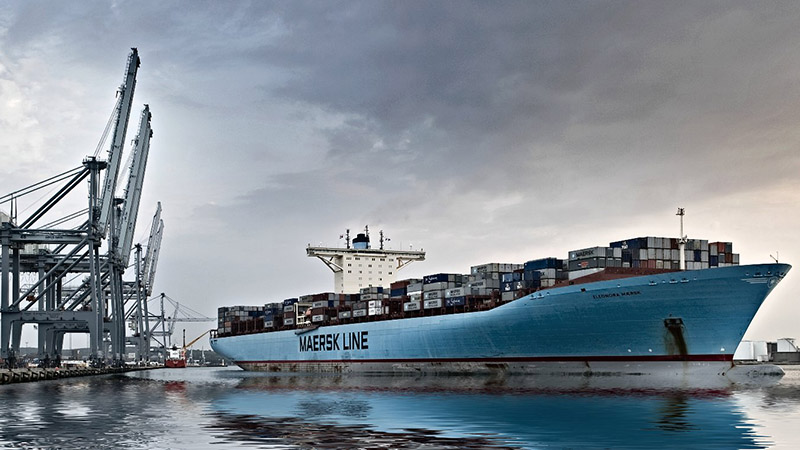An important week of talks starts at the London-based International Maritime Organisation on Monday, where governments will discuss four issues related to climate change at the Marine Environment Protection Committee.
1 – proposals for a new cap on the amount of sulphur emissions
2 – the mandatory collection of ship-level fuel consumption data
3 – a review of energy efficiency targets for shipping
4 – a plan for shipping to tackle its “fair share” of global greenhouse gas emissions
The sulphur deal is important for two main reasons. One: regulating toxic SOx emissions from the shipping and oil sectors would save up to 200,000 lives a year, according to an unpublished IMO report.
Two: an agreement to cut the cap of sulphur content in shipping fuels from 3.5% to 0.5% by 2020 or 2025 would, say analysts at the Transport and Environment NGO, raise fuel prices by up to 30%, heightening the incentive for fuel efficiency.
Battle lines are clear: the EU supports the 2020 deadline, while China is imposing similar domestic rules. The US and major flag states are keeping quite. Brazil, IPIECA and Bimco, the major hydrocarbon and shipping lobby groups, oppose it.
CVF in Addis
The Climate Vulnerable Forum meets in the Ethiopian capital for two days of talks tomorrow.
The 50-strong group of countries includes the hosts, Bangladesh, Rwanda, the Marshall Islands and the Philippines, and was credited with ensuring the Paris climate agreement made reference to limiting warming to 1.5C.
Priorities for the group – which is not an official negotiating bloc at UN talks – includes getting more and better access to climate funds, raising the profile of adaptation and ensuring major emitters meet their promises.
The organisation’s 2016-2018 roadmap can be found here; also worth reading is this op-ed from the Maldives environment minister Thoriq Ibrahim on why adaptation is important for CVF countries.
EU climate action
If in doubt, create a panel. On Friday, the European Commission announced a “High Level Panel on Decarbonisation Pathways”.
It will be led by scientist Hans Joachim Schellnhuber – he of advising-the-Pope fame – who is director of the Potsdam Institute for Climate Impact Research (PIK). A major report will be delivered in three years.
“Research and innovation are essential to design technologies and policy trajectories that will allow meeting the long-term goals of the Paris Agreement on climate change,” said Carlos Moedas, European Commissioner for Research, Science and Innovation.
“Our capacity to provide the best available science evidence will be instrumental for future decisions. This is what we expect by the high-level panel that starts working today.”
EU climate inaction
The UK government will decide where and how it will boost airport capacity on Tuesday, transport minister Chris Grayling told the BBC on Sunday.
Climate campaigners say an expanding aviation sector in the UK is incompatible with the country’s carbon-cutting targets. Comedian and columnist David Mitchell agreed in the Observer, questioning why airport expansion was treated as inevitable and climate change barely mentioned.
WMO annual GHG bulletin
It’s out at 9:00 GMT on Monday. It’s not good news. NASA had its say last week…
Must be a coincidence https://t.co/qX6xYrQZpp
— Elon Musk (@elonmusk) October 22, 2016
World Bank CO2
Stat of (last week): 101 countries accounting for 58% of global GHG emissions are considering using carbon pricing, according to the World Bank’s latest survey.
“Already, about 40 national jurisdictions and over 20 cities, states, and regions are putting a price on carbon. This translates to a total coverage of around 7gigatons of carbon dioxide equivalent (GtCO2e) or about 13 percent of global GHG emissions. The share of global emissions covered by carbon pricing initiatives has increased threefold over the past decade.”
Renewables outlook
On Tuesday, the International Energy Agency launches its latest mid-term outlook into the deployment of renewables around the world. We’ll have it covered.
“The report examines this question in detail and looks at how renewable energy in the power, heat and transportation sectors will evolve over the next five years in the face of lower fossil fuel prices. It explores recent renewable deployment and policy trends across different regions and countries, particularly as costs for wind and solar PV continue to fall, and touches on advanced biofuels use.”
COP22 previews…
Stay tuned this week as we roll out our first batch of analysis ahead of the Marrakech talks, including an exclusive interview with UNFCCC chief Patricia Espinosa.
10 years of Stern
A decade ago the UK Treasury published a review of the economics of climate change, named after its lead author Lord Stern.
The study was to become the seminal piece of work looking at the implications of a warming world on the global economy, and it had a simple conclusion that has underpinned efforts to tackle climate change ever since: the benefits of strong, early action considerably outweigh the costs.
On Friday in London, Stern will be joined by leading UN officials, government wonks and the odd economist to discuss what has changed since 2006 – we’ll bring you a full report.
